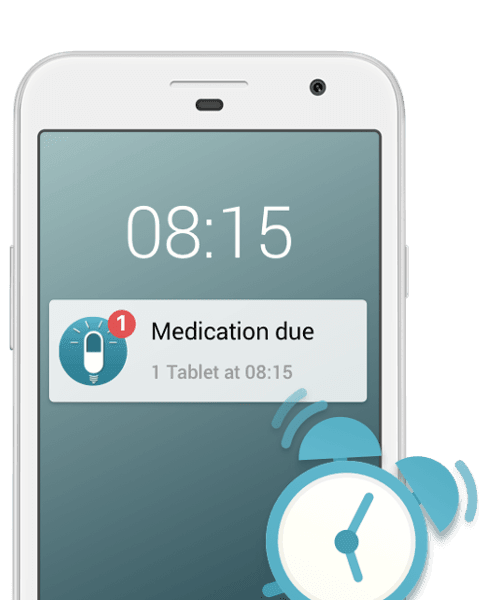People living with lung and respiratory diseases, including COPD, asthma, emphysema, and bronchitis, are among those to whom the disease caused by the 2019 novel coronavirus, COVID-19, poses a greater risk. Although new information regarding COVID-19 is coming to light regularly, it is well established that pneumonia is the most serious symptom of the disease, which makes it of particular concern to people with pre-existing respiratory conditions. We have rounded up some of the most useful information from the likes of the COPD Foundation, the British Lung Foundation, and the Respiratory Health Association, to help you and your loved ones stay safe during this challenging time.
The content on this page is provided for informational purposes only. While we have made every effort to ensure the information in this article is accurate and from reliable sources, the coronavirus situation is rapidly evolving, and new information is regularly coming to light. Please check the latest advice provided by your country’s government or national healthcare service and act accordingly.
Coronavirus and Respiratory Diseases: Who is at Risk?
At the time of writing, it is believed that the coronavirus poses a greater risk to people living with certain respiratory diseases than to the general population. They include:
✔️ Asthma
✔️ Chronic obstructive pulmonary disease (COPD)
✔️ Emphysema
✔️ Bronchitis
✔️ Bronchiectasis
✔️ Pulmonary fibrosis
✔️ Sarcoidosis
If you are living with one of these conditions, it does not necessarily mean you are more likely to catch the virus. If you do catch it, however, there is a greater chance of it leading to serious complications such as pneumonia.
5 Recommendations for People with a Respiratory Disease
We have rounded up five tips for people living with respiratory diseases from reliable sources.
1. Strictly follow precautions
It is particularly important for people at risk from coronavirus, including those living with respiratory diseases, to take measures to reduce the risk of contracting the virus. These include:
✔️ Avoid large gatherings and public transportation
✔️ Avoid traveling to known endemic areas
✔️ Avoid possible sick people and people who have traveled to known endemic areas
✔️ Wash your hands regularly and very thoroughly
✔️ Use disinfectants, especially after contact with objects that are touched by many people (door handles, railings, etc.)
✔️ Do not touch your face, especially your mouth, nose, and eyes
✔️ Use disposable tissues when sneezing or coughing, or do so in the crook of the arm
✔️ Keep regular tabs on the latest measures being enforced in your country or region and follow them strictly
2. Pay attention to symptoms
Some of the symptoms of COVID-19, such as shortness of breath and coughing, are similar to those of a flare-up or exacerbation of a respiratory condition such as asthma or COPD.
According to the British Lung Foundation, fever is the most notable symptom to help differentiate between COVID-19 and a respiratory flare-up or exacerbation. Fever is a very common symptom of COVID-19, whereas it is not normally associated with flare-ups or exacerbations of asthma, COPD, and other respiratory conditions.
Paying close attention to your symptoms can help you take the appropriate course of action. Now more than ever, it is important to have an action plan in place in the event of a flare-up. Organizations such as The Asthma & Allergy Foundation of America and Asthma UK provide resources to help you and your family prepare for flare-ups.
The COPD Foundation has a guide to preparing for disasters, which contains advice that can be useful for the current outbreak. You can find it here.
If you believe you may be experiencing symptoms of COVID-19, you should follow the latest guidelines provided by your national or regional health service. These guidelines vary depending on where you live and can change daily as the situation evolves, so be sure to keep yourself informed with the latest information.
3. Don’t stop taking your meds
For people living with underlying health conditions, including respiratory conditions, it is vitally important to manage your health as best as possible during the coronavirus outbreak.
The Asthma Society of Ireland states:
“As someone in this vulnerable group, it is extremely important that you manage your respiratory condition as well as possible and you stay as healthy as you can.”
“It is very important that you take your medication as advised by your healthcare professional. In the meantime, make sure you are managing your asthma or COPD as well as possible.”
Managing your condition as best as possible, as well as lifestyle factors such as eating healthily, getting exercise, getting enough sleep, not smoking, and limiting alcohol consumption, will help your body and your immune system fight COVID-19 should you be infected by the coronavirus.
To this end, many health organizations are recommending that people living with chronic health conditions try to stock up on their medication if possible. The Respiratory Health Association recommends maintaining at least a 30-day supply.
Additionally, friends and family members may be able to pick up your medication for you, helping limit your exposure to the virus and mitigating your risk of infection.
4. Get flu & pneumococci vaccines
The Respiratory Health Association recommends that people living with respiratory diseases (along with all members of the household) receive the flu vaccination if they have not already done so.
The flu shot does not offer protection against COVID-19. However, it helps ensure your body is not already weakened by influenza should you contract COVID-19. The same applied to pneumococci vaccines. If you are not up to date with vaccinations, you should contact your doctor about the safest way of receiving them.
5. General tips
There are additional measures you can take to help ensure you are in the best shape to fight COVID-19, should you be infected.
✔️ Eat a balanced diet with plenty of fruit and vegetables
✔️ Stay hydrated – drink plenty of water
✔️ Exercise within your capabilities. The World Health Organization has provided a useful list of exercises you can perform within your own home
✔️ While this is a stressful time, try to make time for yourself and reduce unnecessary stress
✔️ Aim to get 7-9 hours of sleep. Studies have found that a lack of sleep makes you more susceptible to viruses and can weaken your immune system
If you should fall ill, either with symptoms of COVID-19 or another condition, current guidelines in most countries recommend that you:
❌ Do not go to a doctor's office unannounced
✔️ Call local health department, medical emergency service, or your family doctor
Regarding face masks, both the COPD Foundation and British Lung Foundation advise against wearing them. There is a lack of evidence supporting their effectiveness, they may cause breathing difficulties for people living with respiratory conditions, and members of the public buying masks is leading to a supply shortage for healthcare workers (for whom face masks are vitally important).
You can find more advice regarding the coronavirus outbreak and living with a chronic disease here: Coronavirus & Living with a Chronic Disease: Helpful Tips
Useful Resources
Here are some useful resources for people living with respiratory diseases. You can check these websites regularly to ensure you stay up to date with the latest advice:



